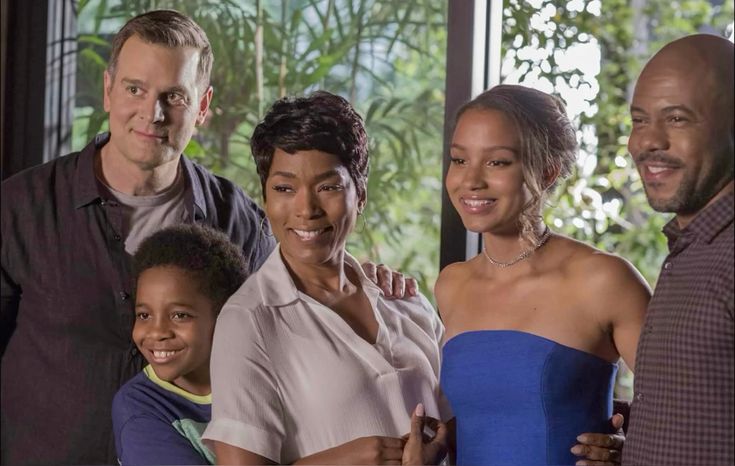
Chimney and Maddie have always been a special couple in 9-1-1. So, it makes sense that their children and their names would also be unique — at least, from each other. While Chimney and Maddie’s son is Robert Nash Han, their daughter is Jee-Yun Buckley Han (they named her after Chimney’s late mother).
At the very least, 9-1-1 should mention how interesting it is that Chimney and Maddie’s children have wildly different names. The names Robert and Jee-Yun are quite different as they have separate origins. Consequently, the ABC procedural drama has the perfect opportunity to call out this quirk in the Buckley-Han family. At the very least, 9-1-1 should mention how interesting it is that Chimney and Maddie’s children have wildly different names.
A Naming Quirk That Deserves the Spotlight
In the ever-dramatic world of 9-1-1, family dynamics are always at the center of emotional arcs, plot twists, and character development. But when it comes to Chimney and Maddie, one curious detail stands out—their children’s names are wildly different in style, tone, and cultural weight. Their daughter is named Jee-Yun, a deeply meaningful Korean name, while their son (introduced later) is named Xander, a cool, modern Western name.
Sure, it might seem minor. But here’s the thing: names matter. And when it comes to storytelling, they can reveal a lot more than meets the eye. So, why hasn’t 9-1-1 leaned into this stark contrast?
The Power of Naming in TV Shows
Why Names Are More Than Just Labels
Names in fiction—especially in long-running TV series like 9-1-1—aren’t just chosen at random. They carry cultural, emotional, and symbolic weight. Think of “Olivia Pope” in Scandal or “Walter White” in Breaking Bad. Names help set the tone.
A Look at Chimney and Maddie’s Relationship Through Names
Their relationship has always been filled with tension, reconciliation, and emotional roller coasters. Could their differing name choices for their children reflect deeper aspects of their relationship? You bet.
Jee-Yun: A Name with Roots
Honoring Chimney’s Korean Heritage
Jee-Yun is Chimney’s mother’s name—a nod to family, culture, and history. It was a beautiful moment in the series that gave us a rare glimpse into Chimney’s background. It wasn’t just a name; it was a bridge between generations.
The Emotional Weight of Naming a Child After a Grandparent
It’s a deeply traditional choice, often used to pay homage and carry forward a family legacy. Jee-Yun’s name tells us that Chimney feels connected to his heritage, and wants that passed on to his daughter.
Enter Xander: A Stylish, Trendy Departure
Who Picked Xander and Why?
We don’t get much backstory about why their son is named Xander. Is it short for Alexander? Did Maddie want something that sounded strong and modern? Was Chimney involved? These are the unanswered questions that make fans pause.
Xander’s Name Feels Detached from Cultural Roots
Compared to Jee-Yun, Xander feels like it came from a completely different universe. It’s not a bad name—it’s actually pretty cool—but it raises eyebrows when placed next to his sister’s culturally rich name.
The Symbolic Disparity: East Meets West?
A Tale of Two Identities
Jee-Yun anchors her identity in Korean tradition. Xander? He feels like he belongs in a sleek New York penthouse. This clash in names might reflect something deeper—like a quiet cultural disconnect between Maddie and Chimney, or even indecision on the writers’ part.
Missed Opportunity or Storytelling Goldmine?
The Potential for a Rich Narrative Thread
What if 9-1-1 actually explored this name difference? Maybe Jee-Yun grows up questioning why her brother got a “cooler” name. Or maybe Xander wants to learn about his Korean roots. There’s so much emotional richness to explore.
Let the Characters Talk About It
Imagine a touching dinner-table conversation where Maddie and Chimney explain the choices to their kids. Raw, real, and relatable TV.
What This Says About Maddie
Maddie’s Journey and Autonomy
Naming Xander may have been Maddie’s way of reclaiming a sense of self after trauma. She’s been through hell and back. A modern name might represent hope, new beginnings, or just something emotionally safe and detached from the past.
What This Says About Chimney
Trying to Balance Two Worlds
Chimney may have given in to Maddie’s choice to keep peace—or maybe he’s still grappling with his own identity. Does he feel like he has to pick his battles? That’s something worth unpacking.
Is There a Gendered Pattern Here?
Cultural Name for the Girl, Trendy Name for the Boy
This isn’t the first time a show has gone this route. But why give the daughter a deeper, heritage-based name and the son a Westernized one? Could this be unintentionally reinforcing stereotypes about who gets to carry the family legacy?
Fan Reactions and Online Discussions
Reddit and Twitter Are Already Talking
Fans have noticed the name gap—and they’re divided. Some think it’s harmless, others feel it points to a deeper inconsistency in the show’s writing. And when fans notice? Writers should take note.
Diversity Shouldn’t Be One-Off
Jee-Yun Can’t Be the Token Cultural Moment
By giving Jee-Yun a meaningful name and stopping there, the show risks treating diversity as a box checked. Exploring Xander’s connection (or lack thereof) to the same cultural world could bring more depth.

A Fix Could Be Simple—and Powerful
Incorporating Cultural Dialogues in the Script
A single episode could unpack the meaning behind both names. Maybe the kids even ask their parents. A little dialogue can go a long way in bringing emotional resonance and realism.
Other Shows That Did This Right
Fresh Off the Boat, Never Have I Ever, and More
Other series have tackled naming and cultural identity in meaningful ways. 9-1-1 has the opportunity to stand shoulder-to-shoulder with these if it dares to go deeper.
Final Thoughts: Why This Small Detail Deserves Big Attention
Names are identity markers. They carry weight, stories, culture, and emotion. In a show as character-driven as 9-1-1, overlooking the symbolism behind Chimney and Maddie’s children’s names is a missed opportunity. By leaning into this “quirk,” the writers could offer viewers something emotionally resonant, socially relevant, and narratively rich.
Conclusion
At first glance, the naming disparity between Jee-Yun and Xander might seem like a minor, quirky footnote in 9-1-1’s storytelling. But names are never just names. They’re reflections of identity, culture, family, and intention. When writers intentionally (or unintentionally) juxtapose such different name styles for siblings, they open a door to deep conversations about cultural representation, parental dynamics, and the legacy characters leave behind. It’s a detail 9-1-1 shouldn’t just sweep under the rug. It deserves the spotlight.